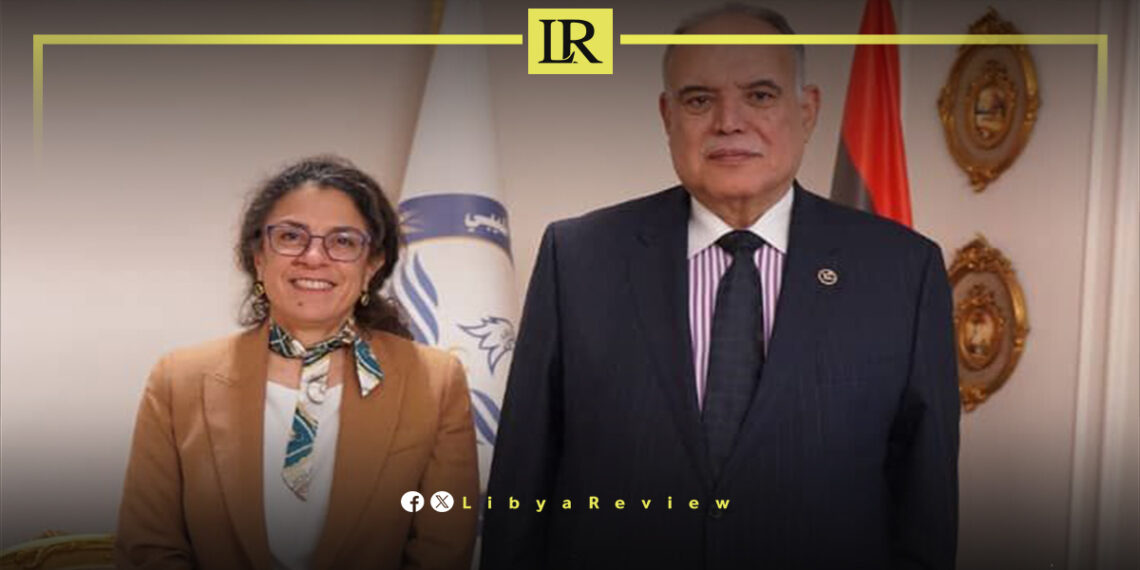On Sunday, Libya’s National Security Advisor Ibrahim Bushnaf met with Stephanie Khoury, Deputy Special Representative of the United Nations Secretary-General for Political Affairs and Acting Head of the United Nations Support Mission in Libya (UNSMIL). The meeting, held in Benghazi, focused on advancing the UN-led political process aimed at securing parliamentary and presidential elections in the country.
Bushnaf and Khoury discussed recent developments on both local and international levels, emphasizing the need for coordinated efforts to overcome challenges facing the electoral process. They addressed mechanisms for fostering political stability, resolving disputes, and creating the necessary conditions for free and fair elections.
The meeting reflected a shared commitment to progress, as Libyan officials and the UN recognize that a stable political environment is essential to moving the country forward. Bushnaf expressed Libya’s readiness to work closely with international partners to ensure the electoral process is transparent and inclusive, while Khoury reaffirmed the UN’s dedication to supporting Libya in its pursuit of sustainable political solutions.
Libya remains deeply divided, with rival political factions and competing governments struggling to unify the country after years of conflict. The situation stems from the aftermath of the 2011 revolution, which toppled Muammar Gaddafi but left a power vacuum that fragmented the nation. Since then, Libya has endured cycles of violence, foreign intervention, and failed attempts at reconciliation.
In recent years, UNSMIL has been at the forefront of mediating between the various Libyan factions. Initiatives like the Libyan Political Dialogue Forum (LPDF) aimed to set a framework for elections and establish a unified government. However, disagreements over the legal framework for elections, electoral laws, and questions about the legitimacy of certain political actors have stalled progress.
The call for elections has gained momentum as Libyan citizens demand an end to the political impasse. Elections, originally planned for December 2021, were postponed due to disputes over eligibility rules and constitutional arrangements. Since then, Libya has seen sporadic progress, but the absence of a clear and unified roadmap continues to impede progress.


